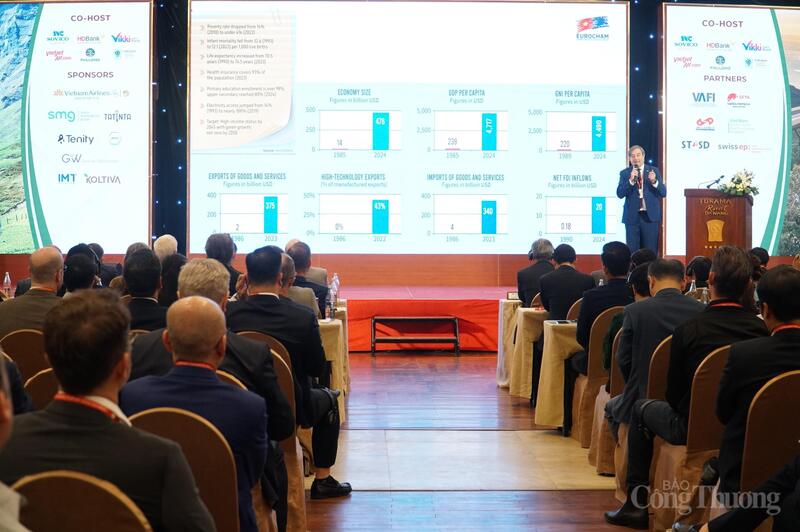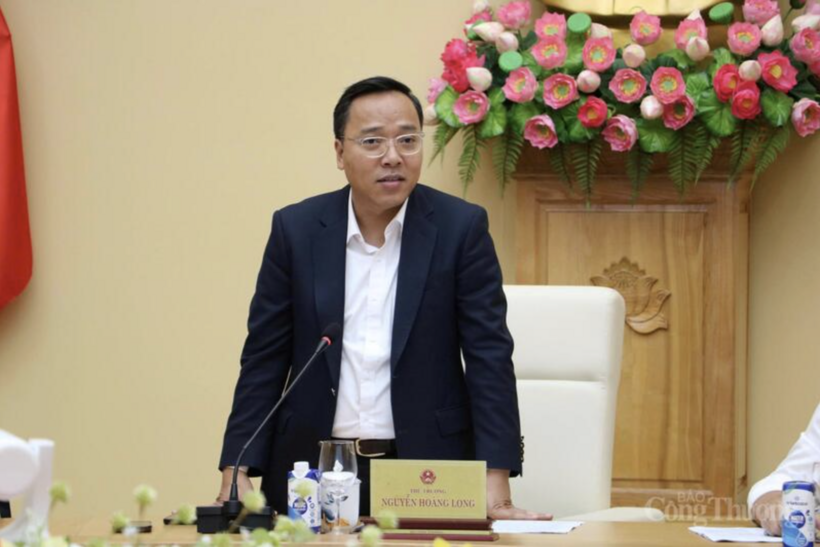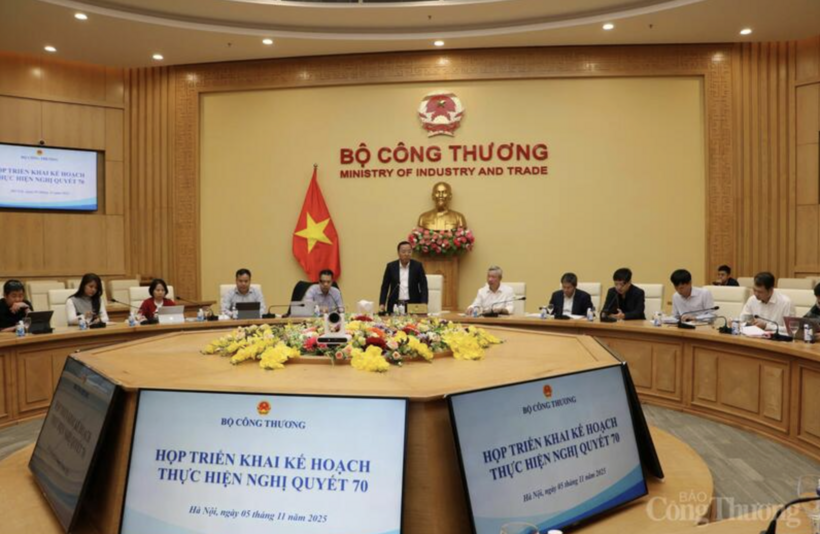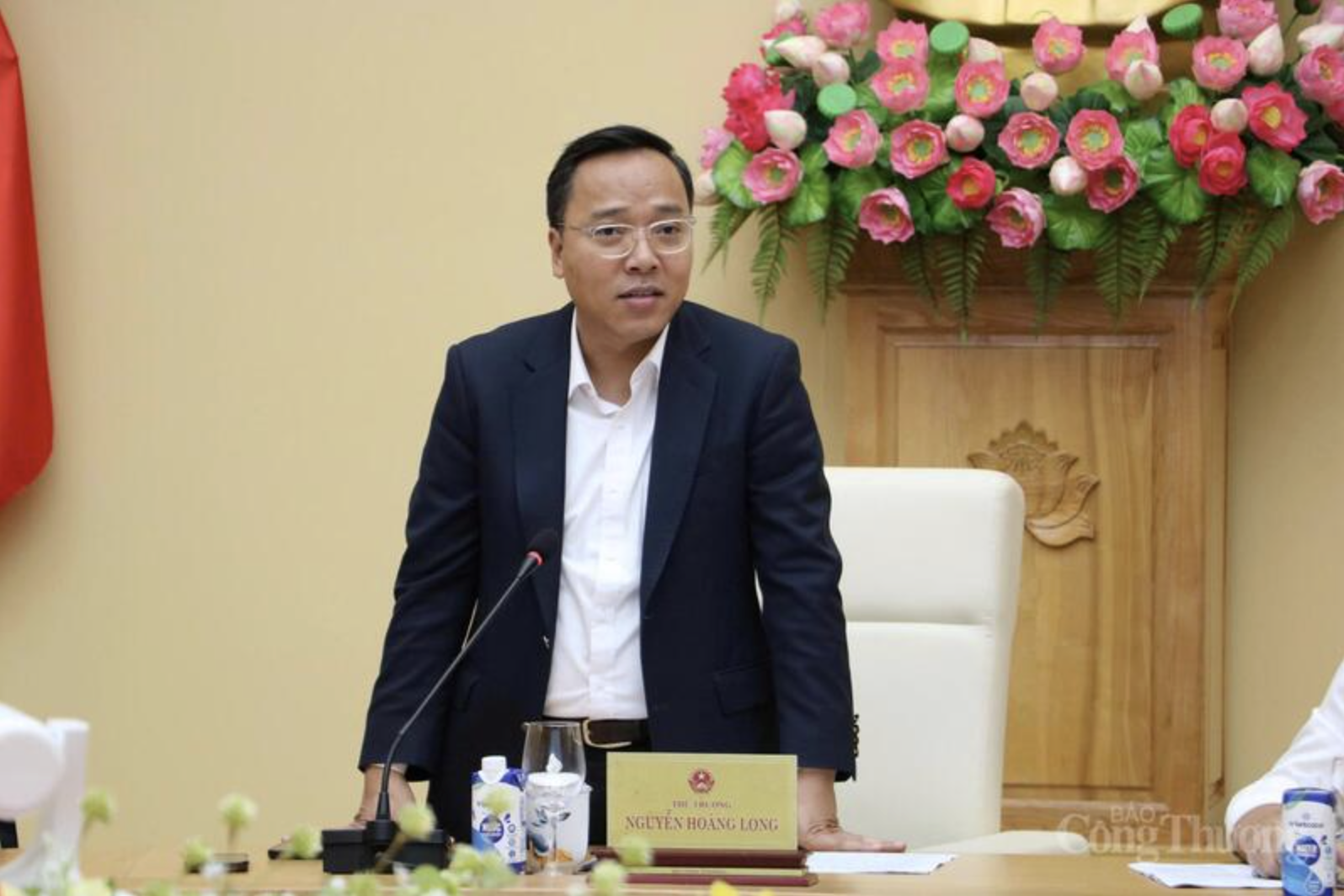
Economic diplomacy: The “golden key” to Vietnam - Switzerland cooperation
19:05 | 23/03/2025 20:37 | 05/11/2025Trade
The meeting was chaired by Deputy Minister of Industry and Trade Nguyen Hoang Long, with participation from delegates of the Ministry's functional departments/bureaus, and leading enterprises, corporations, and general companies.

Deputy Minister Nguyen Hoang Long chairs the meeting. Photo: Phong Lam
Resolution 70 on ensuring national energy security through 2030, with a vision to 2045, was signed and issued by Party General Secretary To Lam on behalf of the Politburo on August 20, 2025.
The Resolution stipulates that efficient and thrifty energy use and reducing greenhouse gas emissions are among its key focuses. These points serve as crucial pillars for national energy security and for building a sustainable development of Vietnam’s energy sector.

View of the meeting. Photo: Phong Lam
Regarding the overall objectives by 2030, Resolution 70 aims not only to ensure national energy security but also to set ambitious targets. Specifically, the resolution seeks an energy savings rate of approximately 8 to 10% of total final energy consumption, compared to the normal development scenario. It further mandates a reduction in greenhouse gas (GHG) emissions from energy activities by roughly 15 to 35%, relative to the Business-as-Usual (BAU) scenario.
The Resolution also outlines a vision toward 2045: firmly ensuring national energy security; establishing a healthy, fair, transparent, and efficient energy market aligned with the socialist-oriented market economy institution.
Furthermore, the vision mandates the synchronized and sustainable development of the energy sector, marked by the efficient use of resources, environmental protection, reduction of greenhouse gas emissions, and adaptation to climate change. The sector is envisioned to possess smart, modern energy infrastructure that connects effectively with the regional and international arenas. Finally, the quality of human resources, scientific and technological expertise, and governance capacity in the energy sector must reach the level of modern industrialized countries.

19:05 | 23/03/2025 20:37 | 05/11/2025Trade

19:05 | 23/03/2025 17:08 | 05/11/2025Trade

19:05 | 23/03/2025 17:06 | 05/11/2025News and Events

19:05 | 23/03/2025 17:03 | 05/11/2025Industry

19:05 | 23/03/2025 17:01 | 05/11/2025Industry